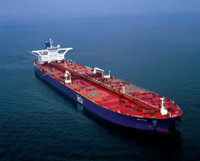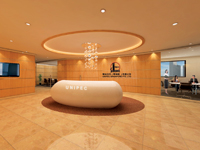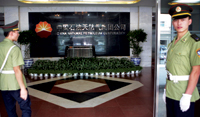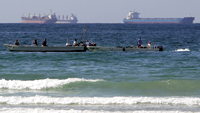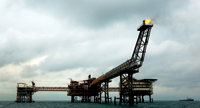
IRANIAN newbuilding orders at Chinese and South Korean yards are drawing closer legal scrutiny as the US continues to tighten its sanctions regime against the defiant Islamist state. US sanctions specialists say it is impossible to be certain from a distance about whether the newbuilding deals, long since done, could draw fire from US sanctions enforcers.
But Iranian companies currently have nearly 40 ships on order abroad. Thorny questions surround especially the ships on order for Islamic Republic of Iran Shipping Lines (IRISL) and affiliates. VLCCs ordered by National Iranian Tanker Co (NITC) are thought to be less vulnerable.
IRISL, with up to 28 tankers, bulkers and general cargoships on order at Korea’s Hyundai Mipo Dockyard and SPP Plant & Shipbuilding, as well as China’s Shanghai Huanghai Shipyard, has an unwanted special status with US authorities as an alleged violator of nuclear non-proliferation bans.
In particular, IRISL’s set of nine products tankers on order at Mipo may draw special attention because of the US policy goal of discouraging Iran’s import of refined petroleum products and of preventing Iran from developing its own petroleum-refining capacity.
Those ships were reported ordered in January 2008 as a 10-ship series but were thought in 2010 to have been reduced to nine as a result of currency fluctuations. The ships were originally meant to have been delivered between 2011 and 2013 but broking sources now list delivery dates as beginning in March 2013.
In January 2008, when IRISL placed the Mipo order, some of the present US sanctions against Iran were in place but the European Union (EU) had no such policies as yet. It was not until September of that year that the US Treasury Department’s Office of Foreign Assets Control (OFAC) first added IRISL to its specially designated nationals (SDNs) list for allegedly carrying undisclosed cargoes of equipment for nuclear plants.
But the chronology might not necessarily help that much, according to sanctions specialist Jonathan Epstein of the Washington DC office of the Holland & Knight law firm.
He explains that there are limited “sanctity of contract” provisions in the more recent US sanctions that target Iran’s import and refining of petroleum products, such that an entity would not be sanctioned for honouring contractual obligations that were not sanctionable at the time they were entered into.
But the separate regulations on trading with SDNs accused of violating rules on the non-proliferation of weapons of mass destruction, such as IRISL, have no express contract-sanctity provision.
The question will be an especially tricky one if non-Iranian banks are involved and become reluctant to provide successive tranches of financing.
Epstein underscores that US sanctions have been enforced with some discretion, as the goal of US policy is not to penalise third-country entities but rather to put economic pressure on Iran. Hence, the US might exercise such discretion in deciding whether or not to sanction a major industry of a close ally. And he speculates that the Korean government might get a sympathetic hearing from Washington if it took the matter up at a diplomatic level.
“It’s a tough question what I would advise a foreign shipyard with pre-existing orders from IRISL, if it were my client,” says Epstein. “Do we actively engage the US government as some entities with oil investments in Iran have done, terminate the orders or simply sit tight and accept the risk that the US Government may seek to impose sanctions?” Under at least five successive layers of US sanctions imposed since 2005, including the Comprehensive Iran Sanctions, Accountability and Divestment Act of 2010 (Cisada), the recently passed National Defence Authorisation Act (NDAA) and related executive orders by the US president, there are complex restrictions on doing business with Iran or some or all Iranian entities, especially for US citizens and US-based companies, who face a variety of potential penalties.
But non-US persons also face severe economic consequences if US authorities restrict their ability to do business with the US, as happened to Tanker Pacific and Ofer Brothers in June 2011 because of the sale of a products tanker to IRISL. What was lost in that case – access to US export licences, US Exim Bank financing and loans from US financial institutions of greater than $10 million – was not of great practical value to the shipowners affected.
However, it is understood to have been an annoyance as third parties now sometimes hesitate to do business with the sanctioned companies, or seek legal counsel before doing so.
Most recently, however, December’s NDAA threatens non-US banks with being cut off from business with US banks if they are found to have been connected to crude-oil-related transactions with Iran.
That could be a greater blow to international banks than it has been to Tanker Pacific and Ofer Brothers.



















































































